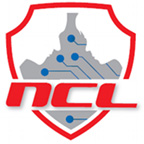Our nation's security, infrastructure, and economy depend on significantly increasing the number and skills of our cybersecurity workforce. None of the academic, government, or corporate cybersecurity programs available today churn out enough world-class cybersecurity professionals needed by government agencies and industries now and in the foreseeable future. What is needed is something comparable to traditional sports that acts as a formal, successful pathway—cybersecurity competitions.
Cybersecurity competitions exist in three main categories:
- Offense, for example, Capture the Flag (CTF), Cybersecurity Awareness Week (CSAW) CTF, and National Cyber League
- Defense, for example, CyberPatriot and National Collegiate Cyber Defense Competition (CCDC)
- Forensics, for example, Black T-Shirt Cyber Forensics Challenge [https://cyberforensicschallenge.com/]
It is possible to participate in cybersecurity competitions from sixth grade through college and beyond. Turning cybersecurity into a competitive sport is advantageous for learning through real-world simulations with the ability to track performance.

The National Cyber League (NCL) provides an ongoing virtual training ground for participants to develop, practice, and validate their cybersecurity knowledge and skills using high-fidelity simulation environments. In NCL, we believe those who participate in cybercompetitions are athletes with the same training, passion, and coolness of your more traditional physical athletes. However, there are more opportunities for these cyberathletes to go pro. Participants not only practice their computing talents but also learn intangible skills such as problem solving, teamwork, and communications. These skills are valuable for individuals looking to launch a career in cybersecurity.
One of the distinguishing factors of the NCL is the integration of learning objectives in all its activities. The main way this is accomplished is by aligning customized content available in NCL Gymnasiums with simulations and games available in the NCL Stadium. This allows players to use the gym environment to develop knowledge and skills before demonstrating them in competitive individual and team play. It also allows the NCL to measure a player's game performance and produce individualized reports (e.g., NCL Scouting Report) on strengths and weaknesses among various learning objectives and industry-recognized competencies.
NCL enables high school and college students to play in the fall and spring seasons. For a $25 registration fee, an individual receives full access to work on exercises in the gymnasium, which is open 24/7. Each school can have an unlimited number of players. Students also have access to a week-long preseason game in the NCL Stadium used to rank player knowledge and skills, followed by a regular season game that provides challenges, scouting reports, certificates of participation, and prizes for top place finishers in gold, silver, and bronze brackets.
After the regular season, teams can play in the postseason for $25. A school can sign up as many teams as they want. The postseason game also is played in the NCL Stadium, with participation certificates for all team members and prizes for top teams in the three brackets.
We believe that 10 years from now, cybersecurity competitions will be as popular for students in middle school, high school, and college as traditional sports. Can you imagine cyberteams becoming a recognized sport at the high school and college level? We can. In 2016–17, almost 8 million boys and girls played high school sports. Over a million played high school football, with roughly 600,000 boys and 500,000 girls on track and field teams. We offer a coed team competition sport that realistically allows more students to go pro. In 2018, about 50,000 high school students will play cybersecurity competitions. Over the next decade, an official high school cybersport will increase the number of student participants tenfold for high school and college.
A recent news story in the Lake County News Chronicle [https://www.lcnewschronicle.com/news/4335364-two-harbors-native-compete-cyber-warrior] summarizes the opportunities that cybersports provide. "When you think about a sport like basketball, once you've learned to play, certainly you've developed physical skills and coordination that are very valuable, but it doesn't translate directly into a skill for the workplace other than a professional basketball player," said Jeremy Straub, NDSU assistant professor and NCL team mentor. "NCL is a little bit different in that the skills being learned during the competition are actually something you could stop doing in the competition one day and show up in an office building and start doing the next day."
The opportunities are seemingly endless for these aspiring cyberathletes.
This blog post is part of a broader effort to promote awareness and exploration of cybersecurity careers for children and adults. National Cybersecurity Career Awareness Week (November 13–18, 2017) is a week-long celebration to focus local, regional, and national interest to inspire, educate, and engage children through adults to pursue fields of study and careers in cybersecurity.
Dan Manson is a professor in computer information systems (CIS) at California State Polytechnic University, Pomona (Cal Poly Pomona), co-chair of the competitions subgroup for the National Initiative for Cybersecurity Education (NICE), and commissioner for the NCL. Follow @NatlCyberLeague on Twitter.
© 2017 Dan Manson. This EDUCAUSE Review blog is licensed under Creative Commons BY-NC-SA 4.0.
